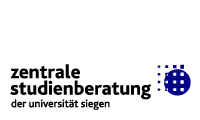Zentrale Studienberatung
im F-S Gebäude
Sandstraße 16-18
57072 Siegen
Erreichbarkeit der
studentischen Hotline:
0271 740-2712
Mo - Do: 9 - 16 Uhr
Fr: 9 - 12 Uhr
Mail:
info.studienberatung[at]
zsb.uni-siegen.de
Terminvereinbarung für eine Beratung über:
0271 740-2712
International Students
You find information about the admission procedure here:
STARTING
Impressum
Electrical Engineering

Short information
| Restricted
admission |
Regular
study time |
Winter
semester |
Summer
semester |
|---|---|---|---|
| no | 6 semester | ✔ | ✔ |
Admission procedure
Unrestricted admission, no application required
Here is how to enroll
Degree
Bachelor of Science
More information
Language of instruction
German
Dates and deadlines
The degree program
The bachelor’s program in Electrical Engineering is oriented towards basic principles and methods. In 6 semesters, it teaches all professional basics and methods that are required for solving problems in the fields of Electrical Engineering. Specialization takes place later in the master’s degree program. Another goal is to teach key qualifications such as communication, teamwork, presentation and moderation skills. Great importance is attached to ensuring that students acquire a well-founded specialist and system knowledge in the major areas of electrical engineering, which is taught in the basic modules. This permits an understanding and the analysis of interrelations in electrical engineering systems.
Important information
- A relevant pre-study internship with a minimum duration of 14 weeks should usually be documented before registering for the first examination in the 3rd semester of the degree program.
- Also offered as a dual study program with practical integration (degree program + practical work in the company).
Professional prospects
Electrical engineers work in nearly all branches of industry and services, in conventional electrical engineering and electronics as well as in mechanical and automotive engineering, in medical technology or in the IT and telecommunications industries. Electrical engineers are innovators, not only in the conventional fields of electrical engineering and information, but also in other key industries.
Electrical Engineering and Computer Science - a strong combination!
Few other scientific disciplines are more representative of the
infrastructure that forms the lifeline of modern industrial
societies than electrical engineering and computer science.
From power plants to microprocessors, from high-speed trains to
small cars, from rolling mill controls to mobile phones,
everywhere hardware and software, electrical engineering and
information technology ensure that technology can be used
smoothly, safely and conveniently.
The Department of Electrical Engineering and Computer Science
at the University of Siegen is one of the few institutions in
Germany that combines research and teaching in electrical
engineering and computer science in one unit.
Organization of the degree program
Subject examination regulations/degree plans/module
handbooks/internship regulations
Subject examination regulations (FPOs) define the basic
structures of a degree program (e.g. admission requirements and
contents to be studied). The current version of an FPO
automatically applies to students when enrolling in the first
semester of study. This means that, even if the FPO changes
during the course of your studies, the original version in
effect at the time of enrollment still applies (provided that
said FPO does not expire).
The respective degree plan contains the recommended exemplary
course of studies in the individual subjects and is part of an
FPO.
Supplementary regulations and detailed information on each
module to be studied can be found in the module handbooks (e.g.
requirements for taking a written examination or information
about the content of modules/courses, …).
The internship regulations define the conditions under which
the compulsory or optional internships must be completed.
We recommend that, as a minimum, you take a look at the degree
plan of your degree program before the start of the lecture
period so that you know which modules are intended for the
start of your studies.


